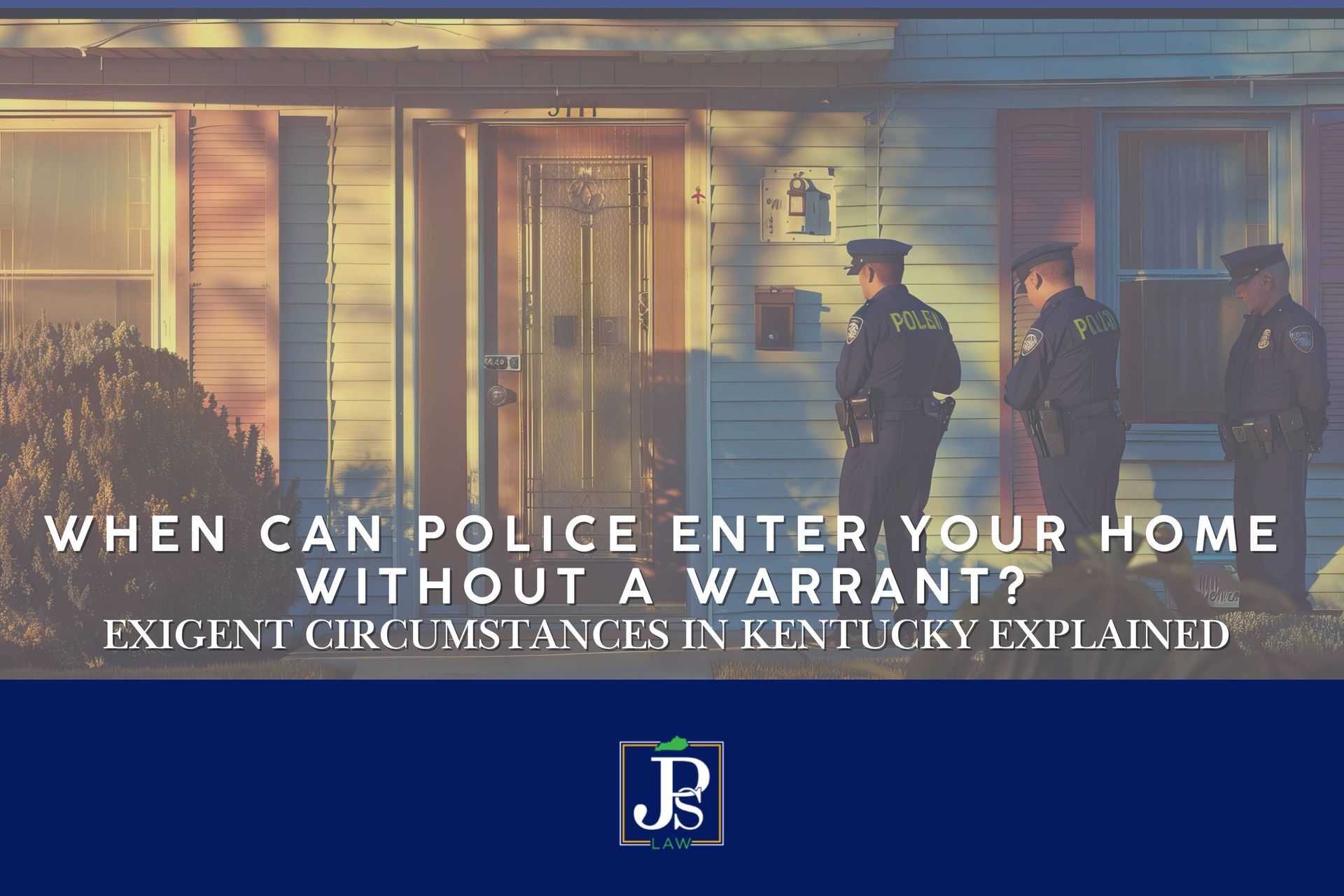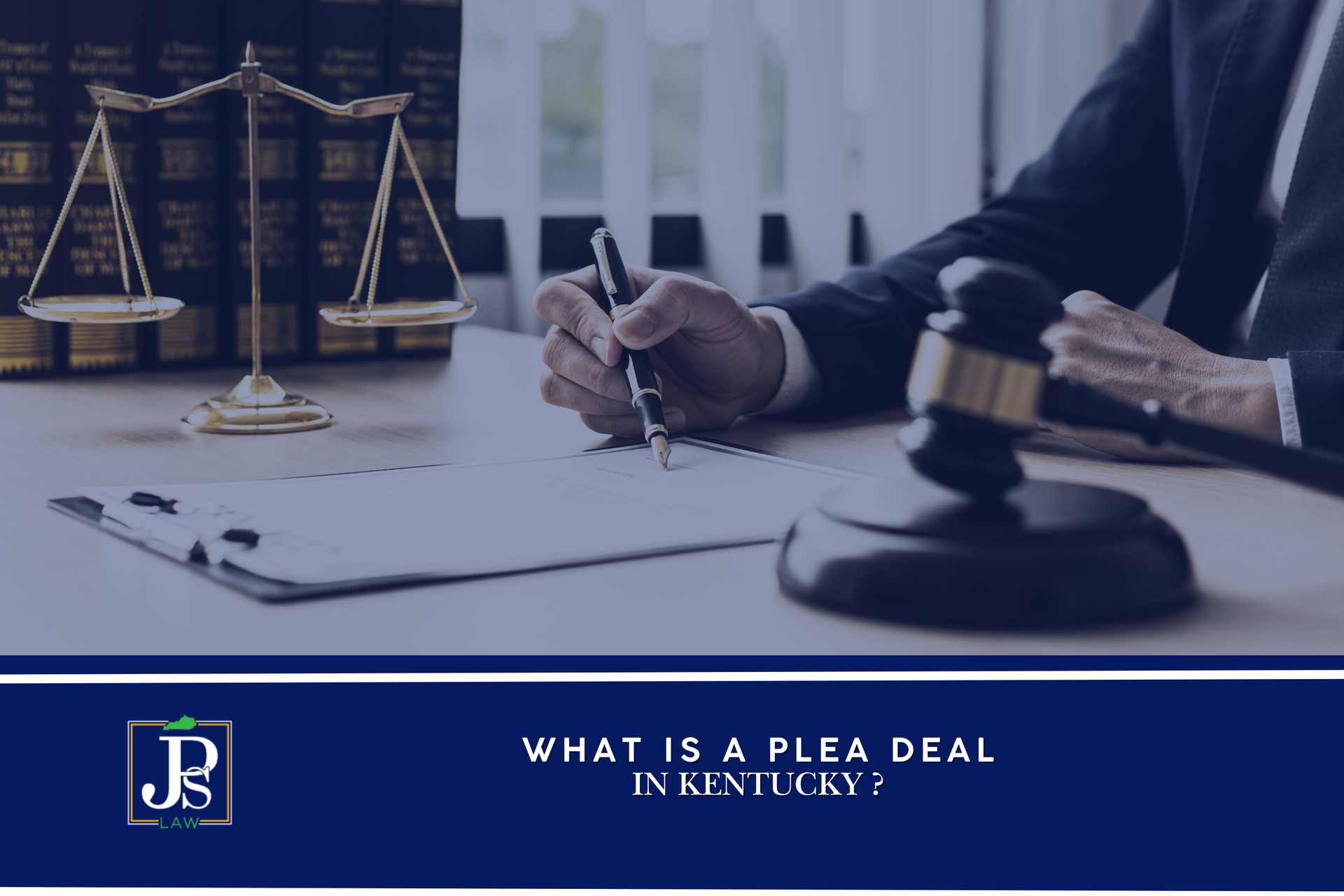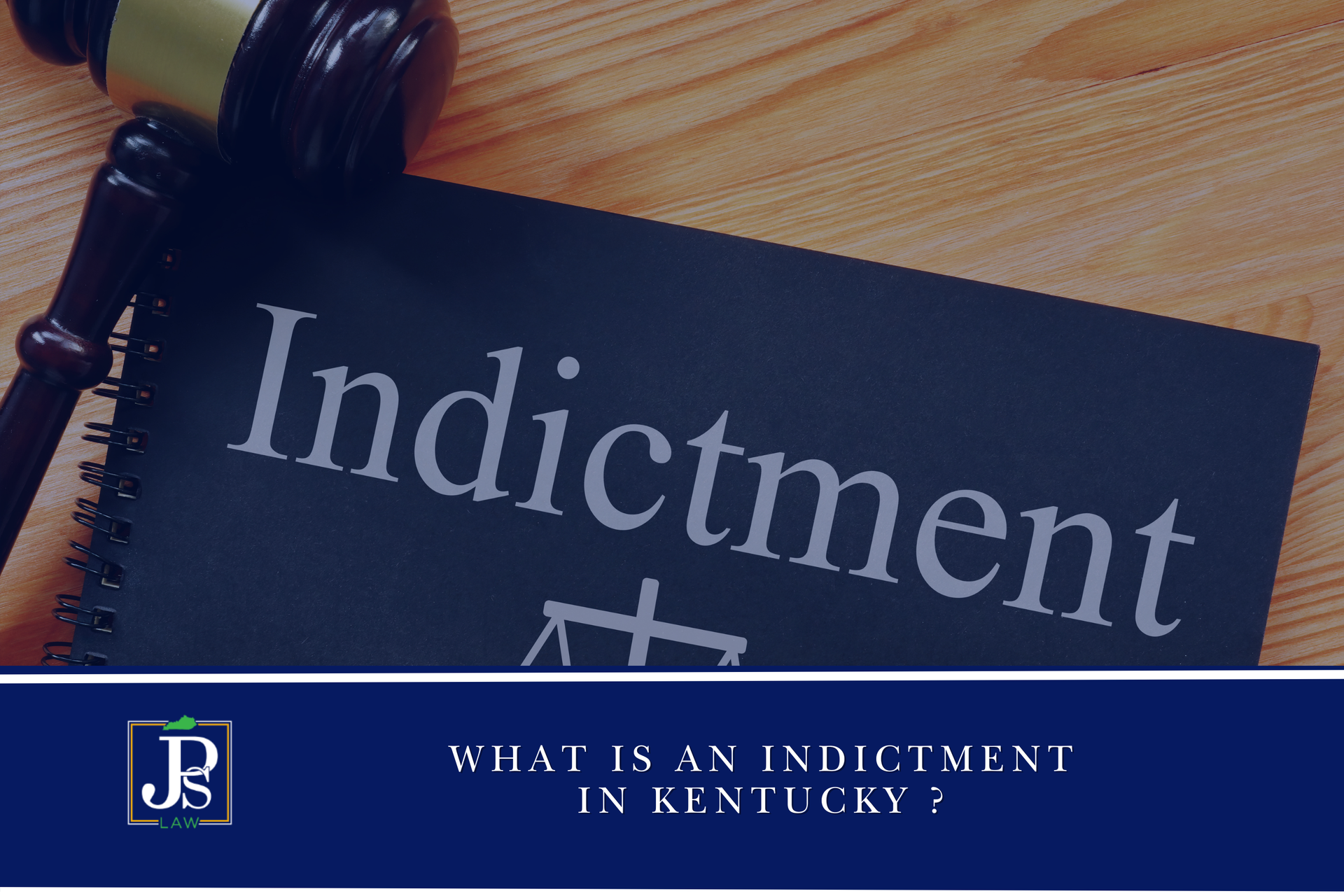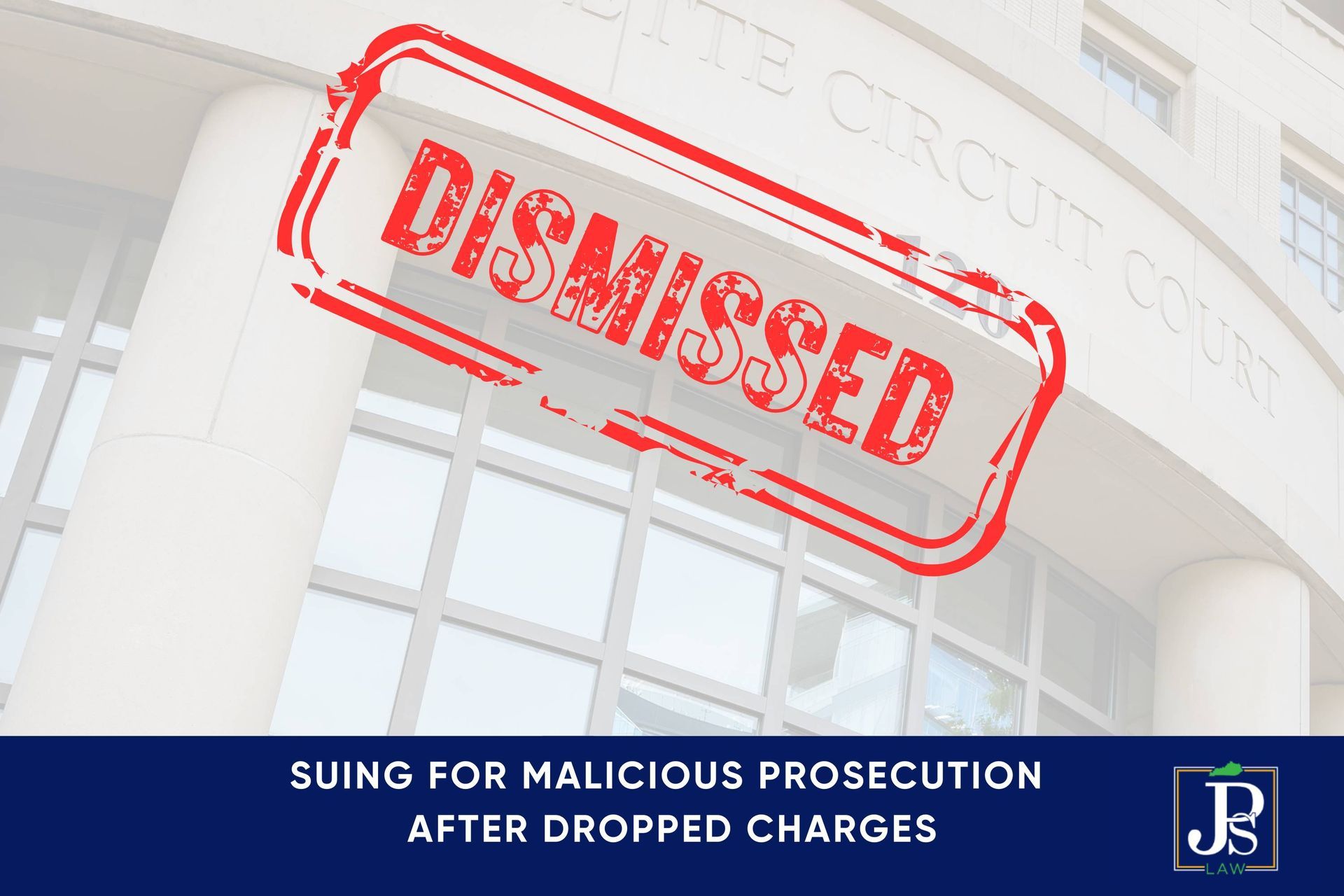At JPS Law, we often hear questions about police power to enter homes. Many believe misconceptions that officers can bypass the Fourth Amendment anytime they claim an "emergency." But Kentucky and federal law strictly limit this power—and understanding these limits could save you from unconstitutional searches. Let’s debunk myths and arm you with facts—from our team of legal experts at JPS Law.

What Does Exigent Circumstances Mean?
Exigent circumstances are emergency situations that legally excuse police from obtaining a warrant before entering your home or private property. Rooted in Fourth Amendment case law, they apply only when "The unavoidable delay of securing a warrant would gravely endanger life, damage property, or allow evidence destruction."
Does Any “Emergency” Justify Warrantless Entry?
No. Police must prove a true exigency exists. The Fourth Amendment protects homes from unreasonable searches, and warrantless entries are presumptively unreasonable in most cases. Exceptions apply only in three narrow scenarios:
- Emergency Aid: To assist someone facing imminent harm (e.g., screams or gunshots heard inside).
- Evidence Destruction: If police reasonably believe evidence is being destroyed (e.g., hearing a shredder or toilet flushing after announcing presence).
- Hot Pursuit:
When chasing a fleeing suspect into a home—but not for minor offenses like misdemeanors.
Police cannot
create the emergency.
Can Law Enforcement Claim Exigent Circumstances to Get Out of the Warrant Process?
No. Courts scrutinize whether police
deliberately avoided getting a warrant. If officers had probable cause and time to secure a warrant but didn’t, the "exigency" may be deemed manufactured. The Supreme Court allows the search only because the officers’ conduct (knocking/announcing) was lawful.
If Police Enter Legally, Can They Legally Search Everything?
No. The Plain View Doctrine applies to searches limited by warrant. Officers may seize only visible evidence. They cannot rifle through drawers, closets, or phones without a warrant.
Common Abuse:
Police may claim evidence was "in plain view" when it wasn’t. If you were in another room during the entry, their account might be disputed.
What Should You Do During a Warrantless Search?
- Stay Calm & Compliant: Never resist arrest—it adds to your potential charges.
- Invoke Your Rights: Say: "I do not consent to this search. I wish to remain silent. I want a lawyer."
- Document Everything: Note officers’ names, time, location, and witnesses.
- Contact a Lawyer Immediately:
Evidence from illegal searches can be suppressed, but deadlines apply. In King, a suppression motion voided the entire case.
Exigent Circumstances Examples in Kentucky Law
In Kentucky v. King, Lexington police entered an apartment complex while chasing an alleged drug dealer. They banged on an apartment door after smelling marijuana outside, and entered after hearing "movement inside."
In Kentucky v. King (2011), the U.S. Supreme Court ruled that officers who knock loudly (without threats or illegal conduct) don’t invalidate exigent circumstances if occupants choose to destroy evidence.
However, the Kentucky Supreme Court later overturned the conviction, noting the "movement" was indistinguishable from "ordinary household sounds"—proving exigency claims can be challenged.
"The police are at my door. What now?"
- If they demand entry: Ask, "Do you have a warrant?" If not, you may refuse (unless they cite exigent circumstances).
- If they enter anyway: Do not interfere. Repeat: "I do not consent to any search."
- After the search:
Write down every detail while fresh.
Contact JPS Law
In
Kentucky v. King, Justice Ginsburg dissented against the majority and wrote: "How ‘secure’ do our homes remain if police, armed with no warrant, can pound on doors at will?". Her warning underscores a grim truth: police tactics can turn routine knocks into “exigencies." Fighting back requires sharp legal defense.
Contact JPS Law today for a free consultation.
Don’t let an unlawful search lead to your conviction. At JPS Law, we dissect exigency claims. If police entered your home without a warrant:
- .We’ll investigate whether the "emergency" was valid or manufactured.
- We’ll challenge evidence seized beyond "plain view."
Disclaimer:
This blog provides general information and discussion about legal topics and services. The information herein should not be construed as legal advice, and readers should not act upon this information regarding their individual case without seeking professional counsel like that from our team at JPS Law.




